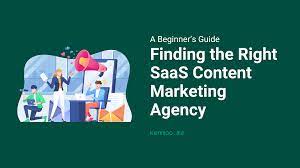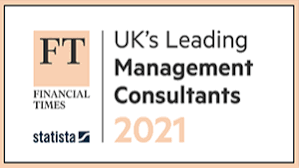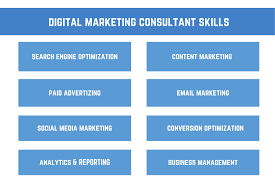Unleashing Success: Harnessing the Expertise of a SaaS Content Marketing Consultant
Unlocking Success: The Power of SaaS Content Marketing Consultants
In today’s digital age, Software as a Service (SaaS) companies face fierce competition in an ever-expanding market. To stand out from the crowd and drive sustainable growth, a strategic approach to content marketing is essential. This is where SaaS Content Marketing Consultants come into play – experts who can help businesses navigate the complexities of the digital landscape and unlock their full potential.
SaaS Content Marketing Consultants are professionals with in-depth knowledge of both the SaaS industry and effective content marketing strategies. They understand the unique challenges faced by SaaS companies, such as attracting and retaining customers, showcasing product value, and differentiating themselves from competitors.
One of the key benefits of engaging a SaaS Content Marketing Consultant is their ability to develop a tailored content strategy that aligns with your business objectives. They conduct thorough research to gain insights into your target audience, market trends, and competitor landscape. Armed with this knowledge, they craft compelling content that resonates with your audience and drives engagement.
These consultants excel at creating high-quality content that educates, informs, and entertains. From blog posts and whitepapers to ebooks and case studies, they have a knack for developing valuable resources that position your SaaS company as an industry thought leader. By consistently delivering informative content that addresses pain points and provides solutions, you establish trust with your audience while establishing yourself as an authority in your field.
Furthermore, SaaS Content Marketing Consultants understand the importance of search engine optimization (SEO) in driving organic traffic to your website. They conduct keyword research to identify relevant terms used by potential customers when searching for solutions like yours. By strategically incorporating these keywords into your content, they improve your website’s visibility on search engine results pages (SERPs), boosting organic traffic and generating qualified leads.
Another area where these consultants excel is in leveraging social media platforms to amplify your reach. Through targeted social media campaigns, they ensure your content reaches the right audience at the right time. By engaging with your followers, responding to comments, and fostering conversations, they help build a community around your brand, increasing brand loyalty and advocacy.
In addition to content creation and distribution, SaaS Content Marketing Consultants also analyze data and provide insights to optimize your strategy. They track key performance indicators (KPIs), such as website traffic, engagement metrics, and conversion rates. With this data-driven approach, they identify what works best for your business and make informed adjustments to maximize results.
Engaging a SaaS Content Marketing Consultant is an investment that can yield substantial returns. By partnering with these experts, you gain access to their industry knowledge, strategic thinking, and creative expertise. They become an extension of your team, working collaboratively towards achieving your business goals.
In conclusion, SaaS Content Marketing Consultants play a vital role in helping SaaS companies navigate the competitive digital landscape. Their expertise in developing tailored content strategies, optimizing for search engines and social media platforms, and analyzing data sets them apart as invaluable partners in driving sustainable growth. If you’re ready to unlock the full potential of your SaaS company’s content marketing efforts, consider engaging a SaaS Content Marketing Consultant today.
7 Essential Tips for SaaS Content Marketing Consultants
- Understand your target audience
- Develop a content strategy
- Produce valuable and engaging content
- Optimize for search engines
- Leverage social media platforms
- Collaborate with influencers
- Analyze data and refine strategies
Understand your target audience
Understanding Your Target Audience: The Key to Effective SaaS Content Marketing
When it comes to SaaS content marketing, one tip stands out above the rest: understand your target audience. This crucial step forms the foundation of a successful content strategy that resonates with your potential customers and drives meaningful engagement.
Knowing your target audience goes beyond just identifying their basic demographics. It involves gaining deep insights into their pain points, motivations, aspirations, and challenges. By understanding their needs and desires, you can create content that addresses their specific concerns and offers valuable solutions.
Start by conducting thorough research to gather data about your target audience. Utilize tools like surveys, interviews, and analytics to gain insights into their preferences, behaviours, and online habits. This information will help you develop buyer personas – fictional representations of your ideal customers – which serve as a reference point throughout your content creation process.
Once you have a clear understanding of your target audience, tailor your content to meet their specific needs. Craft compelling blog posts, videos, case studies, or webinars that address the pain points they experience in relation to your SaaS product or service. Provide actionable advice, industry insights, or step-by-step guides that showcase how your solution can solve their problems effectively.
Personalization is key in today’s digital landscape. Customizing your content for different segments within your target audience can significantly enhance its effectiveness. Consider creating content variations for different industries or user roles within organizations. This level of personalization demonstrates that you understand their unique challenges and positions you as an expert in solving them.
Moreover, understanding your target audience enables you to select the most appropriate channels for distributing your content. Identify where they spend time online – whether it’s social media platforms like LinkedIn or industry-specific forums – and focus on reaching them through those channels. By being present where they are most likely to engage with your content, you increase the chances of capturing their attention and driving them towards conversion.
Regularly monitor and analyze the performance of your content to assess its impact on your target audience. Track metrics such as engagement rates, click-through rates, and conversions to gauge the effectiveness of your content strategy. Use this data-driven feedback loop to refine and optimize your approach, ensuring that you continually meet the evolving needs of your target audience.
In conclusion, understanding your target audience is a fundamental aspect of successful SaaS content marketing. By gaining deep insights into their preferences, pain points, and motivations, you can create tailored content that resonates with them on a meaningful level. This understanding allows you to deliver value, build trust, and establish long-lasting relationships with your potential customers. So take the time to truly know your target audience – it’s the key to unlocking the full potential of your SaaS content marketing efforts.
Develop a content strategy
Develop a Content Strategy: The Key to SaaS Content Marketing Success
In the world of Software as a Service (SaaS), content marketing has become a crucial tool for driving brand awareness, attracting customers, and nurturing long-term relationships. However, without a well-defined content strategy, your efforts may fall short of achieving the desired results. That’s where the expertise of a SaaS Content Marketing Consultant comes into play.
Developing a content strategy is the foundation upon which successful SaaS content marketing campaigns are built. It involves careful planning, research, and goal-setting to ensure that your content aligns with your business objectives and resonates with your target audience.
A SaaS Content Marketing Consultant understands the intricacies of the SaaS industry and can help you craft a strategy that sets you apart from competitors. They begin by conducting thorough research to gain insights into your target market, customer personas, and industry trends. This knowledge forms the basis for creating content that addresses pain points, provides solutions, and captures the attention of potential customers.
A well-crafted content strategy takes into account various factors, such as the types of content to create (blogs, videos, case studies), frequency of publication, distribution channels (website, social media platforms), and key performance indicators (KPIs) to measure success. It ensures that your efforts are focused on delivering valuable content consistently while maximizing reach and engagement.
By developing a comprehensive content calendar or editorial plan, a SaaS Content Marketing Consultant helps you stay organized and maintain consistency in your messaging. This calendar outlines topics, keywords to target for SEO purposes, publication dates, and responsible team members. Having this roadmap in place allows for better coordination across departments and ensures that everyone is working towards common goals.
Moreover, an effective content strategy goes beyond just creating engaging material—it also considers how to optimize it for search engines. A SaaS Content Marketing Consultant leverages keyword research to identify relevant terms used by your target audience. By incorporating these keywords strategically into your content, they improve your website’s visibility in search engine results, driving organic traffic and increasing your chances of being discovered by potential customers.
In addition, a well-crafted content strategy takes into account the power of social media platforms. A SaaS Content Marketing Consultant can help you identify the most suitable channels to reach your target audience and develop a plan for sharing and promoting your content effectively. This ensures that your content reaches the right people at the right time, driving engagement and brand awareness.
Ultimately, developing a content strategy is an essential step towards achieving success in SaaS content marketing. It sets the stage for creating valuable, targeted content that resonates with your audience, boosts organic traffic, and positions you as an industry thought leader. By partnering with a SaaS Content Marketing Consultant, you gain access to their expertise and guidance to develop a strategy that propels your brand forward.
So if you’re ready to take your SaaS content marketing efforts to the next level, consider engaging a SaaS Content Marketing Consultant who can help you develop a robust content strategy tailored to your business objectives. With their guidance, you’ll be well-equipped to navigate the competitive landscape and achieve sustainable growth.
Produce valuable and engaging content
Produce Valuable and Engaging Content: A Game-Changer for SaaS Content Marketing
In the fast-paced world of Software as a Service (SaaS), content marketing has emerged as a powerful strategy to attract, engage, and retain customers. Among the various tips and techniques employed by SaaS Content Marketing Consultants, one stands out as a game-changer: producing valuable and engaging content.
The key to success lies in understanding your target audience’s needs, pain points, and aspirations. By conducting thorough research and analysis, SaaS Content Marketing Consultants gain insights into what resonates with your audience. Armed with this knowledge, they craft content that provides real value – whether it’s informative blog posts, comprehensive whitepapers, or captivating videos.
Valuable content goes beyond mere promotion; it educates and empowers your audience. It addresses their challenges head-on and offers practical solutions. By positioning your SaaS company as a trusted advisor rather than just a sales-driven entity, you build credibility and foster long-term relationships with your customers.
Engaging content is equally important. It captivates the attention of your audience, keeping them hooked from start to finish. Storytelling techniques can be employed to create narratives that resonate emotionally with your target market. This emotional connection not only enhances brand loyalty but also increases the chances of your content being shared across various platforms – amplifying its reach organically.
Furthermore, interactive elements such as quizzes, polls, and surveys can be incorporated into your content strategy to encourage active participation from your audience. This not only boosts engagement but also provides valuable data insights that can inform future marketing efforts.
Producing valuable and engaging content is not a one-time task; it requires consistent effort and creativity. SaaS Content Marketing Consultants understand the importance of maintaining a regular publishing schedule to keep your audience engaged. They develop an editorial calendar that outlines the topics, formats, and distribution channels for your content – ensuring a steady flow of valuable resources that align with your business objectives.
Moreover, SaaS Content Marketing Consultants keep a finger on the pulse of industry trends and emerging topics. This enables them to create timely and relevant content that positions your SaaS company as a thought leader. By staying ahead of the curve, you demonstrate expertise and innovation, further enhancing your brand’s reputation.
In conclusion, producing valuable and engaging content is a tip that can revolutionize your SaaS content marketing efforts. By understanding your audience’s needs, crafting content that provides real value, and employing storytelling techniques to captivate their attention, you can build credibility, foster relationships, and drive sustainable growth. Partnering with a SaaS Content Marketing Consultant can help you unlock the full potential of this strategy – ensuring that your content resonates with your target market and delivers tangible results for your business.
Optimize for search engines
Optimize for Search Engines: Boost Your SaaS Content Marketing Success
In the vast digital landscape, where countless SaaS companies vie for attention, ensuring your content is discoverable by potential customers is crucial. That’s why optimizing your content for search engines is an essential strategy to drive organic traffic and boost your SaaS content marketing success.
Search engine optimization (SEO) involves implementing techniques that improve your website’s visibility on search engine results pages (SERPs). By strategically incorporating relevant keywords and optimizing various elements of your content, you increase the chances of attracting qualified leads who are actively searching for solutions like yours.
To start, conduct thorough keyword research to identify the terms and phrases potential customers use when searching for products or services in your industry. By understanding their search intent, you can align your content with their needs and position yourself as a valuable resource.
Once you have identified the right keywords, strategically incorporate them into your content. This includes optimizing page titles, headings, meta descriptions, and URL structures. However, it’s important to strike a balance – ensure that your content reads naturally and provides value to readers rather than appearing overly keyword-stuffed.
Another important aspect of SEO is creating high-quality, informative content that addresses the pain points of your target audience. Search engines prioritize delivering relevant and valuable results to users. By consistently producing well-researched articles, blog posts, case studies, and other forms of content that provide solutions and insights, you increase the likelihood of ranking higher on SERPs.
In addition to keyword optimization and high-quality content creation, technical aspects should not be overlooked. Ensure that your website is mobile-friendly and has fast loading times as these factors contribute to a positive user experience. Search engines prioritize websites that are user-friendly across different devices.
Furthermore, building backlinks from reputable sources can significantly enhance your SEO efforts. When other websites link back to yours as a trusted source of information or reference in their own content, search engines view your website as more authoritative. Engage in outreach efforts to secure guest blogging opportunities or collaborate with industry influencers to earn valuable backlinks.
Regularly monitoring and analyzing your SEO performance is crucial for ongoing optimization. Utilize analytics tools to track website traffic, user engagement metrics, and conversion rates. By understanding what’s working and what needs improvement, you can make data-driven decisions to refine your content marketing strategy and maximize results.
Optimizing your SaaS content marketing efforts for search engines is a long-term investment that can yield significant benefits. By ensuring your content is discoverable by potential customers actively seeking solutions, you increase the chances of attracting qualified leads and driving sustainable growth for your SaaS business.
In conclusion, optimizing your content for search engines is a fundamental aspect of successful SaaS content marketing. By conducting keyword research, strategically incorporating keywords into your content, creating high-quality resources, optimizing technical aspects of your website, building backlinks, and monitoring performance, you position yourself for increased visibility and organic traffic. Embrace the power of SEO to propel your SaaS company towards success in the competitive digital landscape.
Leverage social media platforms
Harnessing the Power of Social Media for SaaS Content Marketing Success
In today’s digital era, social media has become an integral part of our lives. It’s not just a platform for connecting with friends and sharing updates; it has also evolved into a powerful tool for businesses to reach and engage their target audience. For SaaS companies, leveraging social media platforms is an essential tip to maximize the impact of their content marketing efforts.
Social media offers a multitude of benefits for SaaS content marketing consultants and their clients. Firstly, it provides an opportunity to amplify your brand’s reach and visibility. With billions of active users across various platforms like Facebook, Twitter, LinkedIn, and Instagram, social media allows you to connect with a vast audience that may be interested in your SaaS products or services.
By strategically crafting and sharing compelling content on social media platforms, you can attract attention, generate interest, and drive traffic to your website or landing pages. Thought-provoking blog posts, informative videos, engaging infographics – these are just some examples of content that can captivate your audience’s attention and encourage them to explore further.
Moreover, social media platforms enable SaaS companies to foster meaningful relationships with their target audience. By actively engaging with followers through comments, messages, or even live chats, you can establish a sense of community around your brand. This interaction builds trust and loyalty while also providing valuable insights into your customers’ needs and preferences.
Social media also serves as an effective channel for customer support. Users often turn to platforms like Twitter or Facebook when they have questions or encounter issues with a product or service. By promptly responding to queries or concerns on these platforms, you demonstrate your commitment to customer satisfaction and enhance your brand’s reputation.
Another advantage of leveraging social media is the ability to keep up with industry trends and stay connected with competitors. By following relevant accounts and monitoring industry hashtags or groups, you gain valuable insights into what’s happening in your niche. This knowledge can inform your content strategy, helping you stay ahead of the curve and position yourself as a thought leader in your industry.
To make the most of social media for SaaS content marketing, it’s crucial to have a well-defined strategy. Start by identifying which platforms are most relevant to your target audience. For example, LinkedIn may be ideal for B2B SaaS companies, while Instagram or TikTok could be more suitable for reaching younger demographics.
Next, develop a content calendar that outlines the type of content you’ll share and when. Consistency is key, so aim to post regularly and maintain a cohesive brand voice across all platforms. Don’t forget to track your social media performance using analytics tools to measure engagement metrics, such as likes, shares, comments, and click-through rates. These insights will help you refine your strategy and optimize future content.
In conclusion, leveraging social media platforms is an invaluable tip for SaaS content marketing success. By strategically creating and sharing compelling content on these platforms, SaaS companies can expand their reach, foster meaningful relationships with their audience, provide excellent customer support, and stay up-to-date with industry trends. Embrace the power of social media and unlock its potential to drive growth and success for your SaaS business.
Collaborate with influencers
Amplifying Your Reach: The Power of Collaborating with Influencers in SaaS Content Marketing
In the ever-evolving world of content marketing, staying ahead of the competition requires thinking outside the box. One highly effective strategy that has gained significant traction in recent years is collaborating with influencers. When it comes to SaaS content marketing, partnering with influencers can be a game-changer, offering unique opportunities to expand your reach and engage with your target audience.
Influencers are individuals who have established credibility and a dedicated following in specific niches or industries. They have built trust with their audience through their expertise, authenticity, and engaging content. By collaborating with influencers relevant to your SaaS product or service, you can tap into their established communities and leverage their influence to promote your brand.
One of the key advantages of working with influencers is their ability to create authentic and relatable content that resonates with their followers. Their recommendations hold sway because they have built trust over time. When an influencer endorses your SaaS product or service through engaging content such as reviews, tutorials, or case studies, it can significantly impact your brand’s visibility and credibility.
Collaborating with influencers also provides an opportunity for valuable user-generated content (UGC). Influencers can create content showcasing how they use your SaaS product or service in their daily lives or business operations. This UGC acts as social proof, demonstrating real-world applications and building confidence among potential customers.
In addition to increasing brand visibility, influencer collaborations can drive targeted traffic to your website. Influencers have a loyal fan base who actively engage with their content. By including trackable links or unique discount codes in collaboration posts, you can measure the impact on website traffic and conversions directly attributed to influencer partnerships.
Moreover, influencer collaborations offer an avenue for reaching new audiences that may not be familiar with your brand yet. By partnering with influencers who cater to different demographics or industries, you can tap into untapped markets and expand your customer base. This cross-pollination of audiences can lead to increased brand awareness and potential business opportunities.
When selecting influencers for collaboration, it’s crucial to consider relevance and authenticity. Look for influencers who align with your brand values, target audience, and industry. Authenticity is key – choose influencers who genuinely resonate with their followers and have a track record of producing high-quality content.
To maximize the impact of influencer collaborations, it’s essential to establish clear objectives, provide guidelines, and foster open communication. Collaborate with influencers in a way that allows them creative freedom while ensuring that your brand message is effectively communicated.
In conclusion, collaborating with influencers in SaaS content marketing can be an effective strategy for amplifying your reach and engaging with your target audience. By leveraging their credibility, authenticity, and dedicated following, you can tap into new markets, increase brand visibility, drive targeted traffic to your website, and build trust among potential customers. Embrace the power of influencer collaborations as part of your SaaS content marketing strategy and unlock new opportunities for growth.
Analyze data and refine strategies
Data is the lifeblood of any successful content marketing strategy, and this holds true for SaaS companies as well. In the fast-paced world of digital marketing, it is crucial to analyze data regularly and refine strategies accordingly.
SaaS Content Marketing Consultants understand the importance of data analysis in optimizing your content marketing efforts. They dive deep into the metrics to uncover valuable insights that can shape future strategies. By examining data points such as website traffic, conversion rates, engagement metrics, and customer feedback, they gain a comprehensive understanding of what works and what doesn’t.
Analyzing data allows SaaS Content Marketing Consultants to identify trends, patterns, and areas for improvement. They can pinpoint which types of content resonate most with your target audience, which channels drive the most traffic and conversions, and which strategies yield the highest return on investment (ROI). Armed with this knowledge, they can refine their approach to maximize results.
Refining strategies based on data analysis leads to more effective targeting. Consultants can identify gaps or untapped opportunities in your current content marketing efforts. For example, if certain blog topics consistently generate high engagement rates but are not being explored further, they may recommend creating more in-depth resources or repurposing successful content into different formats.
Data analysis also helps SaaS Content Marketing Consultants optimize search engine optimization (SEO) efforts. By monitoring keyword performance and analyzing search trends, they can identify new keywords or phrases to target or adjust existing ones for better visibility. This ensures that your content aligns with the evolving needs and interests of your target audience while improving organic search rankings.
Moreover, refining strategies based on data analysis allows for agile decision-making. Consultants can quickly adapt their approach by identifying underperforming campaigns or channels that need adjustment or reallocation of resources. This flexibility ensures that you are always optimizing your efforts based on real-time insights rather than relying on assumptions or guesswork.
In conclusion, analyzing data and refining strategies is a critical tip for SaaS Content Marketing Consultants. By leveraging data insights, they can make informed decisions to improve targeting, optimize SEO efforts, and maximize ROI. With a data-driven approach, SaaS companies can stay ahead of the competition and drive sustainable growth in the ever-evolving digital landscape.









